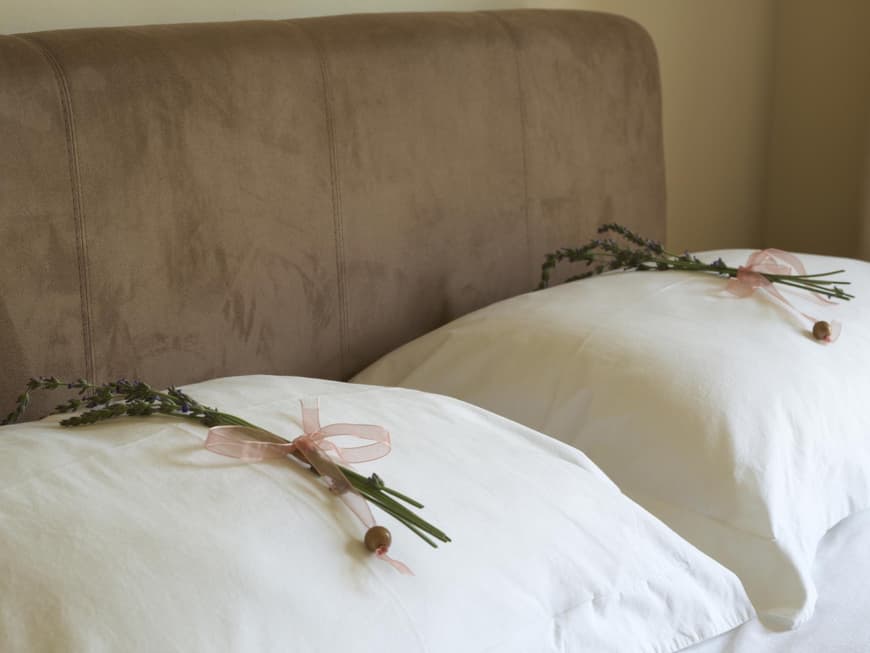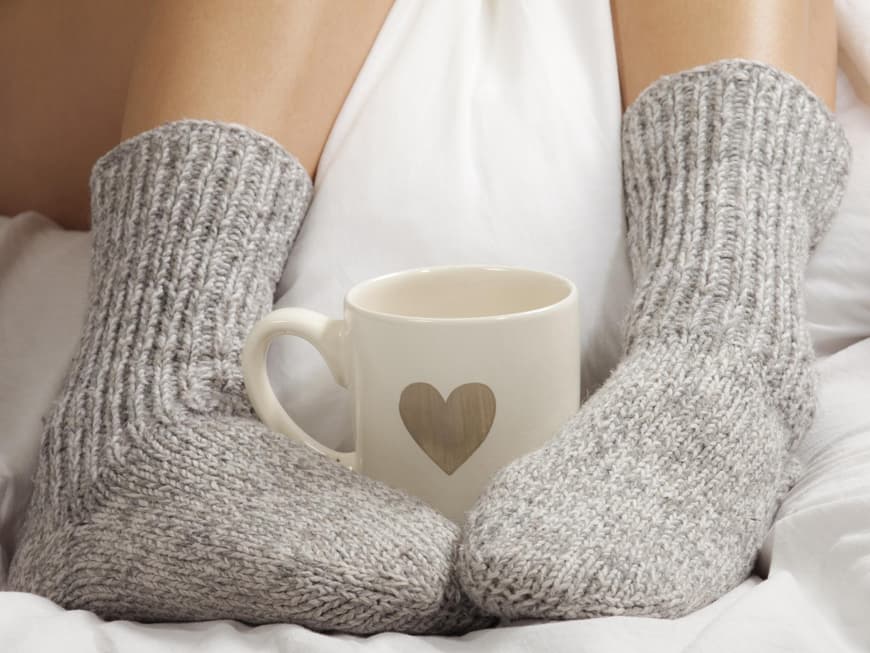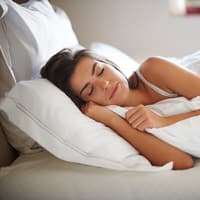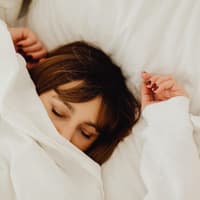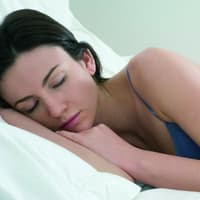A good morning starts with a good night's sleep. The importance of a good night's sleep is emphasized time and time again, but unfortunately we don't always get it right. However, sometimes the causes of a disturbed night's sleep are quite trivial and can be quickly remedied. Our tips for falling asleep can help.
Perhaps you have the wrong slatted frame?
The topic of slatted frames is usually treated rather neglected - even when it comes to tips for falling asleep. However, the slatted frame accounts for 40 percent of sleeping comfort: The slatted frame supports the back and ensures a relaxed lying position. If it is too rigid or too yielding, sleep is disturbed. Experts therefore recommend slatted frames with five to seven zones. They guarantee a correct and relaxed position of the shoulders, buttocks and pelvis. Experts even say that the slatted frame is at least as important as the mattress.
Set yourself a bedtime alarm clock
You should really be in bed by now, but then there's this to do and that to watch ... We've all been there. And so that you don't go to bed later than you actually wanted to, you should set yourself an alarm clock to go to bed and sleep better. By the way: Resist the snooze button in the morning, which rings every five minutes: this doesn't bring any more sleep, but only the feeling of not being rested - and therefore puts you in a bad mood.
Keep a regular sleep diary
Write down every night when you go to bed, approximately how long it took you to fall asleep and how often you woke up during the night. Also write down your worries and fears so that you don't take these thoughts to bed with you. With the help of this diary, it is easier to review your sleeping habits. This is the advice of American sleep therapist Mary Rose.
Rigid rules don't help at all
Even though experts repeatedly recommend at least seven hours of sleep: Everyone has a different need for sleep and there are people who manage with less. If you just can't fall asleep, then simply get up again, have a hot chocolate or read a few lines. This makes more sense than frantically waiting to fall asleep.
Avoid alcohol and late meals
Alcohol can help you fall asleep - but it is no good for sleeping better: alcohol hinders the important deep sleep that the body needs to regenerate. Heavy and late meals also wake you up, as the metabolism is then busy digesting.
No coffee or black tea after 4 pm
The caffeine in an afternoon latte macchiato or espresso stays in the body longer than you might think: caffeine works in the body for up to 14 hours - and caffeine is known to keep you awake. Black and green tea also contain caffeine, as does cola. The last drink with this ingredient should be consumed after lunch at the latest.
It is better not to switch on bright lights at night
Avoid fixed lighting when going to the toilet at night, as the bright light wakes you up and can shift your sleep-wake rhythm. It is best to only switch on the bedside lamp briefly so that your eyes do not get used to the bright light in the first place.
Go to bed at the same time if possible
It sounds like a boring routine - but it's actually a helpful tip for falling asleep: sleep experts recommend always going to bed at the same time and getting up at the usual early time, even at the weekend. Because if you stay up until dawn at the weekend and sleep in late the next day, your sleep rhythm will be disrupted. With regularly timed bedtimes, you train your body to fall asleep faster and sleep soundly throughout the night with far fewer annoying interruptions.
Even more tips for falling asleep
Warm socks against cold feet:
Cold feet mean stress, and stress wakes you up. Warm, cozy socks help against this. According to a Swedish study, you fall asleep much better with warm feet.
Smartphone and laptop out:
Both have no place in bed, according to the experts. This is because the bright light from the screen prevents the release of the sleep hormone melatonin.
Lavender scent calms and relaxes:
A drop of lavender oil on your pillow or a sheet in bed helps you to fall asleep better. The scent calms and relaxes. Lavender is also known as a nervine herb.
The right room temperature:
Sleep researchers recommend 18 degrees in the bedroom. This is because the body temperature is lower at night. If it is too warm, the body cannot cool down.
Nutmeg milk - the quick nightcap:
Heat 250 milliliters of milk, add a pinch of grated nutmeg and a teaspoon of honey and stir. Even Hildegard von Bingen (1098-1179) valued nutmeg as a tip for falling asleep.
What should you avoid for a healthy sleep? This question is also answered in the following video in the Health Lounge by human medicine specialist and biochemist Professor Dr. George Birkmayer.

